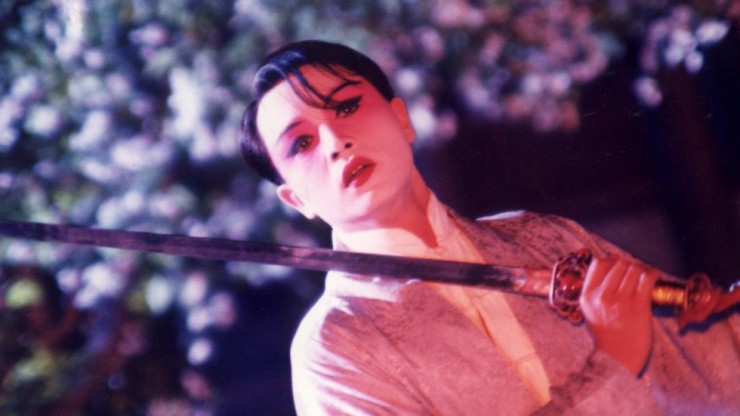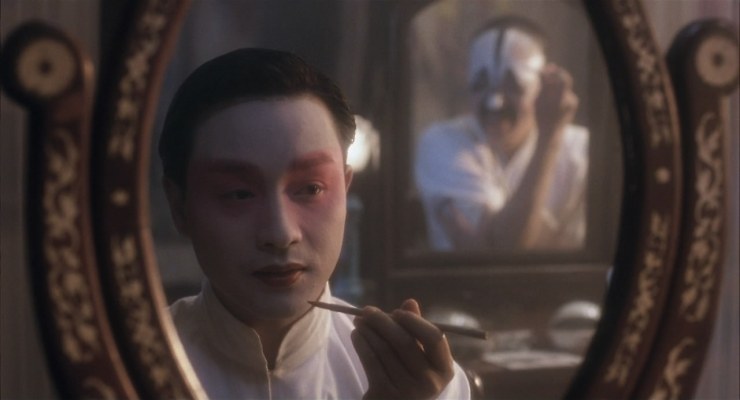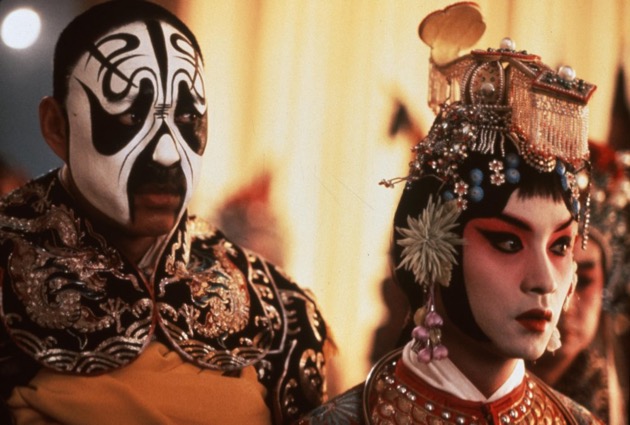
Farewell My Concubine, directed by Chen Kaige, is a 1993 Chinese drama film, part of the Fifth Generation movement which increased the popularity of Chinese films abroad.

Similar to other films produced during the period, it explores China’s political turmoil during the mid-20th century. The main stars of the film are two male stars in a Peking Opera Troupe as well as those in the troupe.

The film was banned primarily for its portrayal of homosexuality and suicide, as well as the violence perpetrated under Mao Zedong’s Communist government, such as the scene where Shitou is questioned by the Red Guards. There are feelings of homosexuality as Douzi and Shitou grow up and Douzi falls in love with Xiaolou.

Although it was originally banned in China, after Farewell My Concubine won the Palme d’Or award at the Cannes Film Festival, international outcry pushed China to lift the ban.
The film received numerous praise from both Western and Eastern critics alike. The Washington Post said:
The director carries us through this early history with impressive sensitivity; he has a beautiful, graceful touch, both with the camera and with his actors. Chen Kaige details the relations between these two children grown into men with exquisite delicacy, revealing that Cheng has fallen madly in love with Duan, who, while he loves his friend, is susceptible to other charms. It is only when this partnership is threatened — by Duan’s relationship with a former prostitute named Juxian (Gong Li) — that we begin to understand what a velvet coffin their lives and careers have become. The line between their art and their lives is smudged, and so they play their roles, both onstage and off, without deviation or variation.
Similarly, Chinese critics highly praised the film. They coined the film as one of the representative films of the Fifth Generation filmmaking period because it precisely revived the loss of traditional art form, such as the Beijing Opera, and reconstructed new artistic identity for such art form through the incorporation of a mentor-trainee love story to highlight traditional art form’s spirituality and cultural value.

However, the film shown in China was an edited version, removing scenes that involved the Cultural Revolution as well as homosexuality. The final scene, was revised to soften Douzi’s suicide at the end. Internationally, Farewell My Concubine was proclaimed as one of the greatest films to come out of China and a spectacular epic.
This film is for those who want to see the Fifth Generation Filmmakers, who grew up during the Cultural Revolution era, searched and redeemed the loss of culture and traditional art forms from their own perspectives. Apart from the two main actors’ stunning performance, the movie has a unique, haunting visual quality and cinematography that would please art house film fanatics and common viewers alike.
Although many Fifth Generation Filmmakers have produced critically acclaimed in their early careers, many of their latest works did not perform well commercially and critically. Read about the decay of artistic, iconic filmmakers in China here.
Interested in learning more about how the Cultural Revolution influenced Fifth Generation Filmmakers? Check out the video below!